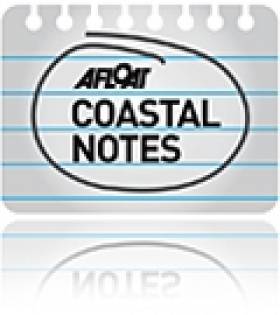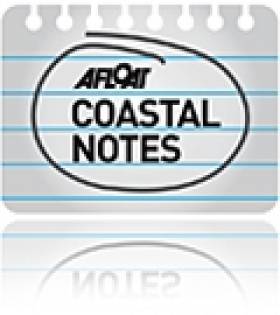Displaying items by tag: Dun Laoghaire Seafront Memorials Tour
#SeafrontTours- The Seafront Memorials Tour is a free guided tour that is part of Dun Laoghaire-Rathdown County Council's annual Summer of Heritage programme.
The first tour begins this Sunday 5 July and will be held every Sunday throughout the summer until 6 September.
Meeting Point: Queen Victoria Fountain, Dún Laoghaire.
Wheelchair accessible.
This is an outdoor event.
Enjoy a tour of the coastal memorials in Dún Laoghaire including the Queen Victoria Fountain, George IV Memorial, the mailboat Leinster's anchor,Christ the King, the Crimean War Cannon and the 1895 Lifeboat Disaster.
Tour Time Start: 11.30am
One tour per day
One event per week
Tour duration: 60 mins
Maximum capacity: 20 people
For more information on other events download the Summer of Heritage brochure here
Dún Laoghaire Seafront Memorials Tour
#SEAFRONT TOURS – Another weekend and a chance to take in the fresh sea-air while learning at the same time. Sounds like a good combination, so why not consider joining the Seafront Memorials Tour which is a guided tour in Dun Laoghaire Harbour which runs every Saturday morning until the 1 September.
The tours take in all the coastal memorials along the harbour's waterfront including the Queen Victoria Fountain, George IV Memorial, the mailboat R.M.S. Leinster's anchor, the Crimean War Cannon and the 1895 Lifeboat Disaster.
The tours start at 11.30 am (1 tour on each Saturday) and they take approximately 1 hour. The maximum number of people for each tour is 20 persons, noting the outdoor event is also wheelchair accessible. No pre-booking is required and places are limited so it is advisable to turn up early.
The tours are part of the 'Summer of Heritage' programme which is now in its fifth year organised by Dun Laoghaire-Rathdown County Council. For information call: (01) 254 2387 or visit: www.dlrevents.ie/heritage.html
Dún Laoghaire Seafront Memorials Tour
#SEAFRONT TOUR – Having started last month, the Seafront Memorials Tour which is a guided tour in Dun Laoghaire Harbour will continue every Saturday morning until the 1 September.
The tours take in all the coastal memorials along the harbour's waterfront including the Queen Victoria Fountain, George IV Memorial, the mailboat R.M.S. Leinster's anchor, the Crimean War Cannon and the 1895 Lifeboat Disaster.
The tours start at 11.30 am (1 tour on each Saturday) and they take approximately 1 hour. The maximum number of people for each tour is 20 persons, noting the outdoor event is also wheelchair accessible. No pre-booking is required and places are limited so it is advisable to turn up early.
The tours are part of the 'Summer of Heritage' programme which is now in its fifth year organised by Dun Laoghaire-Rathdown County Council. For information call: (01) 254 2387 or visit www.dlrevents.ie/events.html






























































